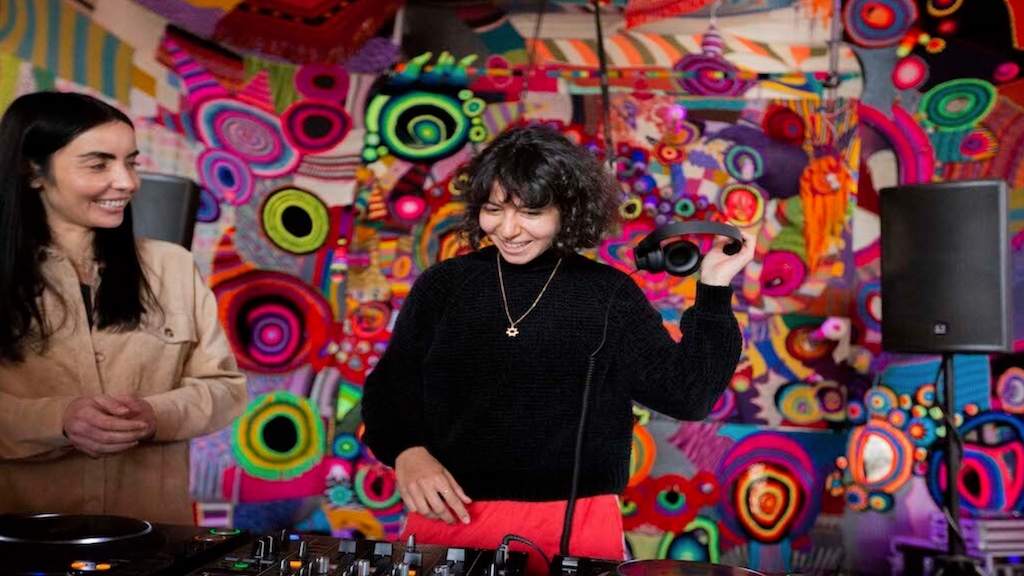Published
Fri, Apr 22, 2022, 14:45
- "I'm not exaggerating," participant Martina Ashraf said. "It was life-changing."

Women and gender minority asylum seekers have been learning to DJ with Palestinian DJ and filmmaker Nour, who held a three-day workshop in Berlin with non-profit organisation Future Female Sounds.
In just two days, more than 60 aspiring DJs applied to join the workshop, with eight being selected to join the sessions which took place earlier this month. In the application process, applicants were asked about the genres they'd like to play, as well as their motivations to take part.
Martina Ashraf, who flew from Egypt to Berlin for the workshop, told Resident Advisor: "[I am] super grateful for this unforgettable experience. I am not exaggerating, it was life-changing. The workshop was meticulously planned for us to kickstart our careers in the field."
Future Female Sounds was launched in 2017 by Tia Korpe to support women and gender minority DJs in the music industry. "Some of the refugees told us they they didn't feel safe to be themselves in the places they had come from," she told RA. "Safe to be a woman, to be queer or non-binary. So it made them very happy to discover a community of others who share the same dreams and experiences."
During the workshop, the artists learned the basics of mixing and about branding and marketing themselves as DJs. On the final evening, participants were invited to play in an open decks showcase.
"These sessions were very special and served as a great launch to our programme," Korpe added. "An open call for the next round of summer workshops will be launched in May."
DJ Nour, who hosted the sessions, has spent several years working in the refugee camps of Palestine, where she organises graffiti and art workshops with young people. "I speak Arabic, so I spent a lot of time in Berlin helping migrant women and refugees with the bureaucracy of paperwork so they can settle in the country," she told RA. "I came across a lot of inspiring musicians and artists and felt I could help them in a different way by using my art, which is probably the best thing I can give them."
Nour said she initially reached out to Future Female Sounds to launch the project because the organisation is already known for providing support to women and gender minorities in electronic music. "I suggested that we could take this to the next level by offering DJ classes to refugees as well," she added.
"Obviously there is an influx of refugees in Berlin who come from all over the Middle East and Africa. It's already hard enough for women to establish themselves as DJs, so imagine how it would be for refugee and migrant women coming into the scene? It's ten times harder for women, and another ten times harder for brown migrant women."
The women Nour has encountered during her Arabic translation work often want to explore their artistic side, she explained, having experienced the trauma of refugee life. "You could tell they wanted to be part of a community of people who are going through the same thing.
She added: "I was a refugee when I emigrated to Canada at a young age, so I understand. I know what it's like to be the brown girl in an all-white school or an all-white society. It's never easy and I wish I had the support of a community I could relate to back then, so this is what I'm trying to do for others now."
Nour also told RA that there are plans to take the DJ workshops to Palestine in the future. The programme, which was funded by the Royal Danish Embassy in Berlin and Neustart Musik, also received audio support from AIAIAI and Monopol.
Photo: Maria Maida